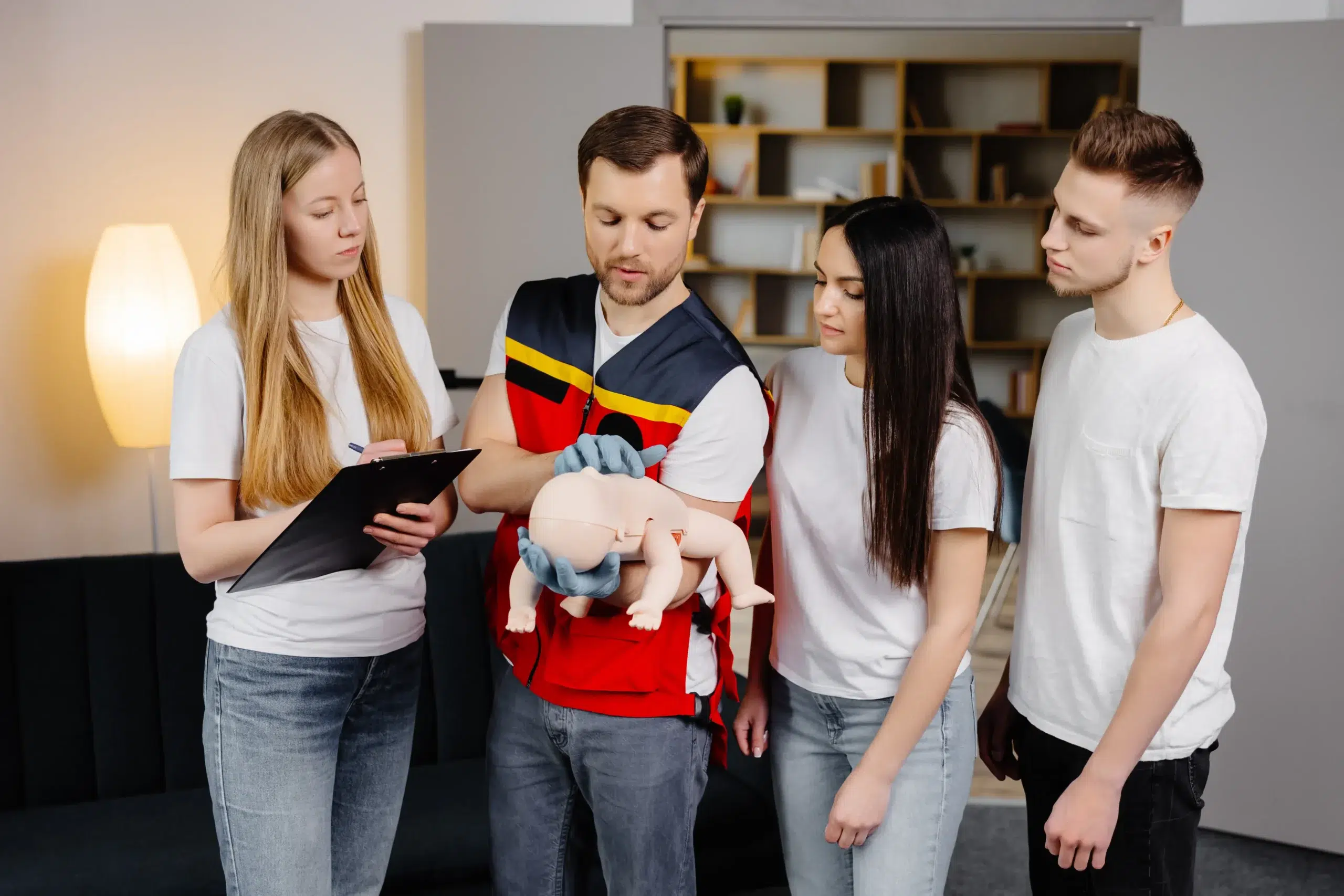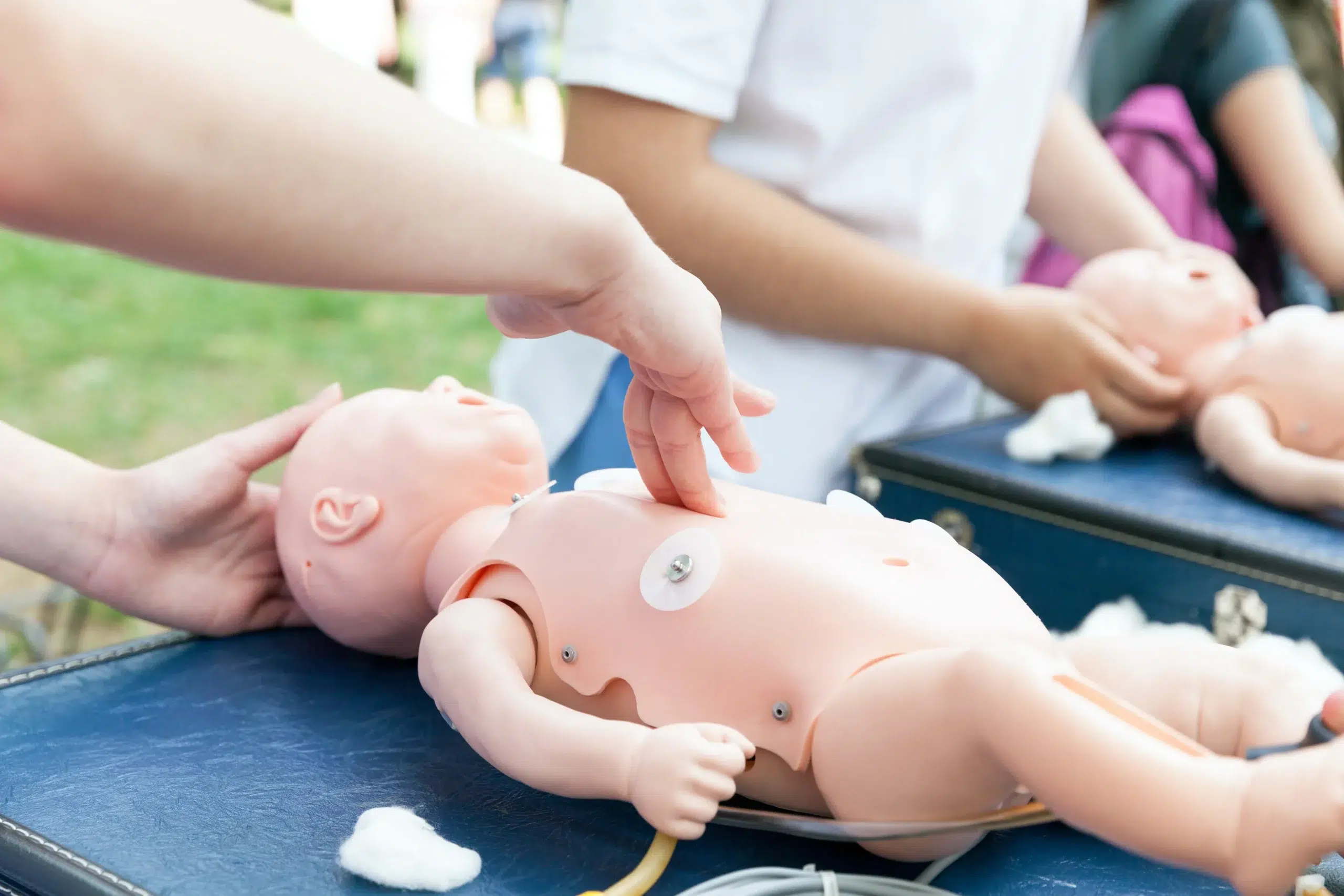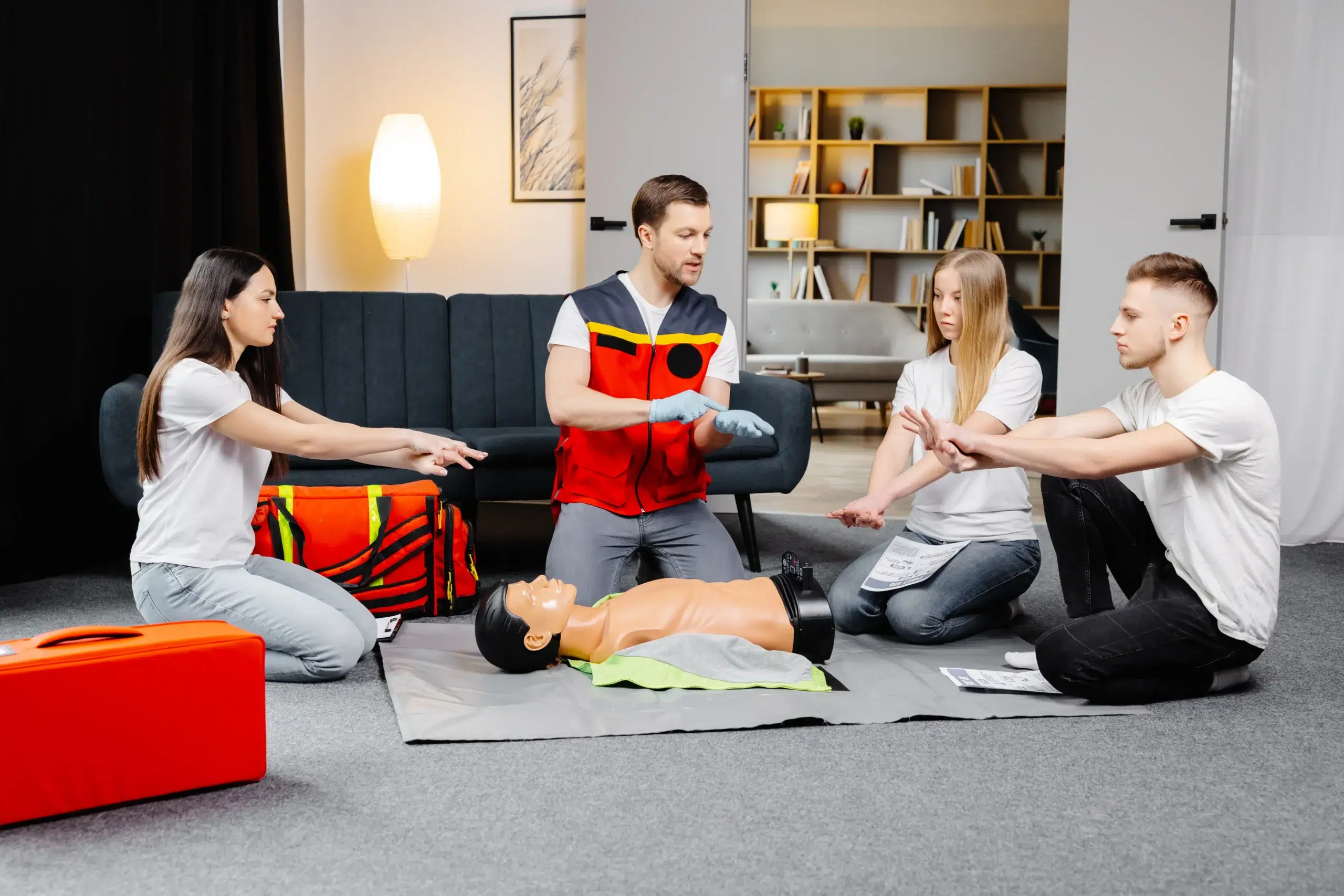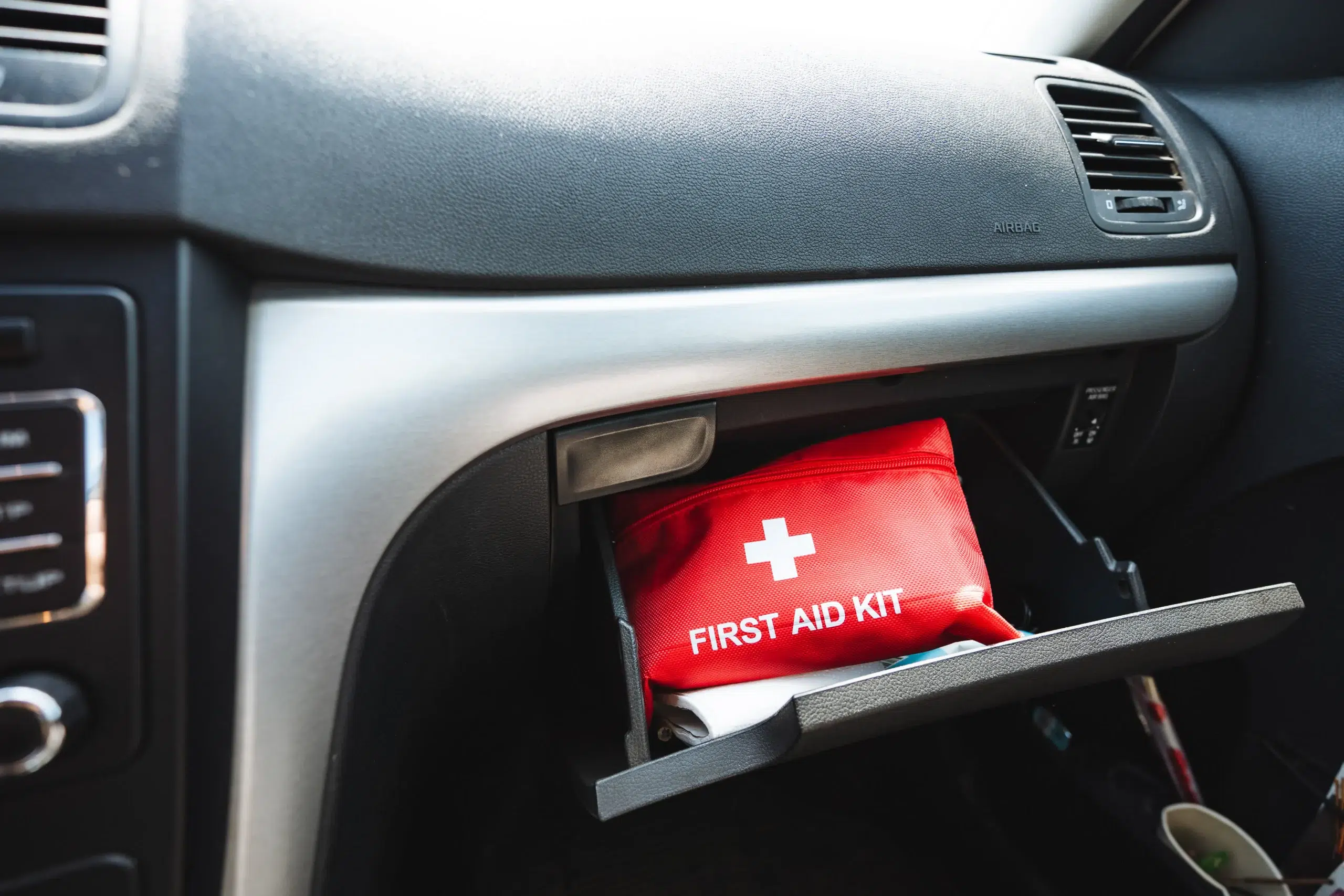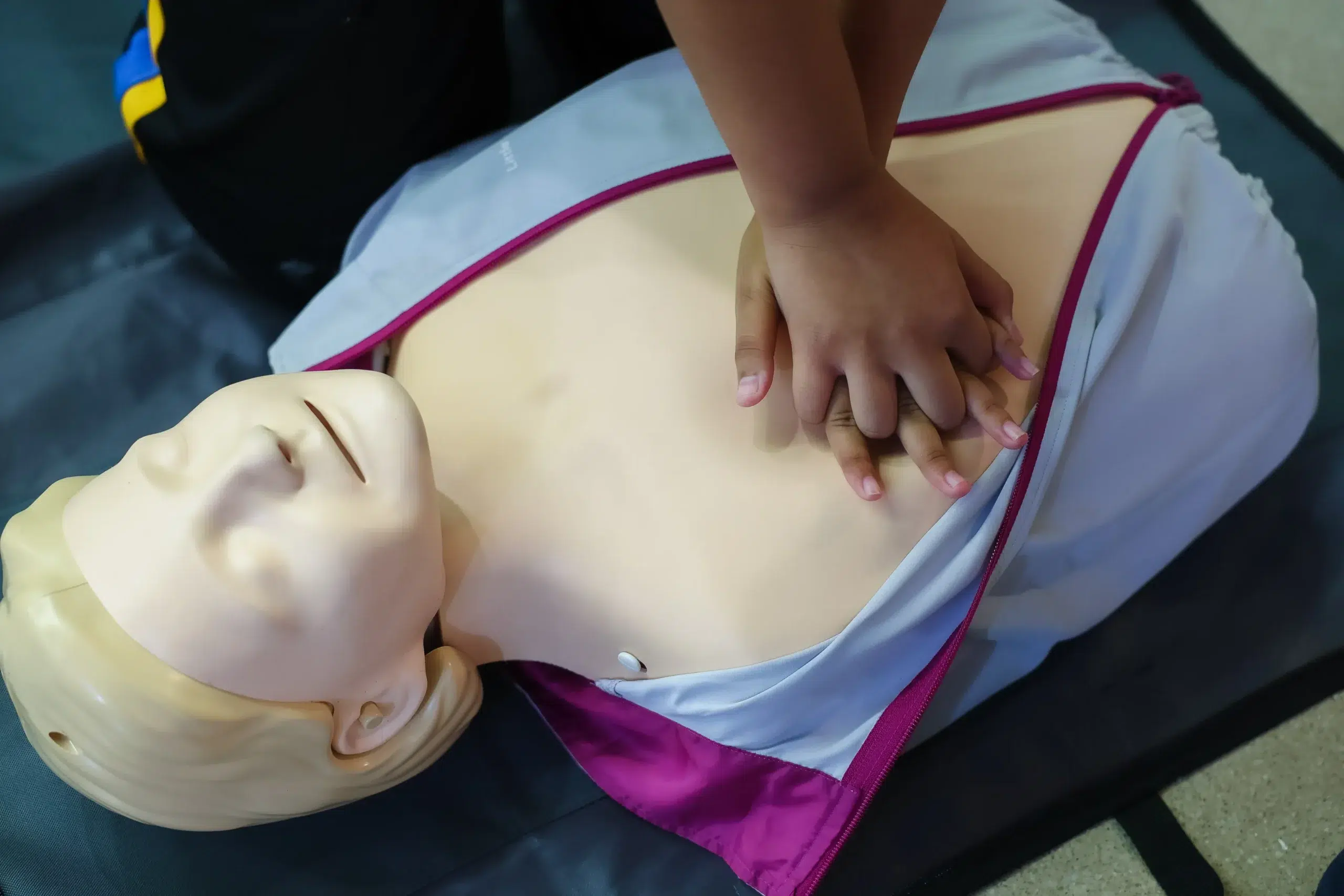Balancing work, life, and continuing education can feel like a juggling act, especially in a demanding field like healthcare. But staying up-to-date with certifications like PALS is essential for providing the best possible care. PALS HeartCode offers a flexible solution, combining online learning with an in-person skills session. If you’re searching for PALS HeartCode in Rocklin, this article will guide you through the process. We’ll cover what the course entails, where to find reputable training centers, and how to fit it all into your busy schedule. We’ll also discuss the benefits of this blended learning approach and why it’s become a popular choice for healthcare professionals.
Key Takeaways
- PALS HeartCode offers flexible, blended learning: Combine online coursework with an in-person skills session to fit your schedule.
- Find convenient PALS training in Rocklin with Roseville CPR Classes: They offer AHA-certified courses, a low price guarantee, and convenient scheduling options.
- Stay current with your PALS skills: Renew your certification every two years to maintain your expertise in pediatric emergency care.
What is PALS HeartCode?
What PALS HeartCode Is and Why It Matters
PALS HeartCode is a blended learning course combining online instruction with a hands-on skills session. It teaches healthcare providers how to recognize and respond to life-threatening emergencies in infants and children. This specialized training covers critical skills, from assessing a child’s airway to managing respiratory and cardiac events. The importance of PALS HeartCode lies in empowering healthcare professionals with the knowledge and confidence to act swiftly and effectively, ultimately improving patient outcomes. For those seeking PALS certification, understanding this blended learning approach is essential.
Key Features and Benefits
PALS HeartCode offers several advantages. The online portion allows self-paced learning, giving you flexibility. The program uses interactive simulations and personalized feedback to reinforce learning and build confidence. This adaptive learning approach tailors the educational experience to your individual progress. After completing the online modules, you’ll participate in a hands-on skills session with an American Heart Association instructor. This session focuses on practical application, allowing you to demonstrate your proficiency in essential PALS techniques. This combination of online learning and in-person practice ensures comprehensive training, preparing you to handle pediatric emergencies. For cost-effective options, explore our group discounts.
PALS HeartCode vs. Traditional PALS: What’s the Difference?
Blended Learning Approach
PALS HeartCode blends online learning with a hands-on skills session. This means you’ll complete part of the course online at your own pace, then attend an in-person session to practice and test your skills. The American Heart Association describes blended learning as combining independent study with a practical skills check. This in-person component for HeartCode PALS usually takes about five hours, with breaks included.
Flexibility and Convenience
A major advantage of PALS HeartCode is its flexibility. The online portion uses an adaptive learning program that adjusts to your individual learning style and existing knowledge. This personalized approach lets you concentrate on areas needing improvement. The American Heart Association points out that this adaptive format means completion times will vary. After finishing the online modules and the in-person skills session, you’ll receive your AHA PALS Provider eCard, valid for two years. This blended learning style offers a convenient path to PALS certification, especially for busy schedules.
How PALS HeartCode Courses Work in Rocklin
This blended learning course combines online coursework with an in-person skills session. Let’s break down each part:
Online Portion: What’s Involved?
The PALS HeartCode course starts with online instruction covering essential concepts for managing pediatric emergencies. You’ll learn core skills, including child and infant basic life support (BLS) and work through interactive scenarios. This part is self-directed, so you can learn at your own pace and review material as needed. You’ll need to complete this online portion before scheduling your hands-on skills checkoff. For more in-depth information, the Children’s Hospital of Philadelphia offers a helpful resource on PALS HeartCode web-based learning.
In-Person Skills Session: What to Expect
Once you finish the online portion, you’ll attend an in-person skills session, typically lasting about five hours including breaks. This session reinforces your online learning through hands-on practice. You’ll work through various scenarios at three learning stations: Respiratory, Rhythm Disturbances, and Vascular Access. An American Heart Association (AHA) instructor will guide you as you practice and demonstrate your skills. This ensures you’re prepared to handle real-life pediatric emergencies. The AHA provides further details on PALS course options if you’d like to learn more.
Where to Find PALS HeartCode Training in Rocklin
Finding the right PALS HeartCode training in Rocklin is easier than you think. Here are a few reliable options:
Roseville CPR Classes
Roseville CPR Classes offers the American Heart Association (AHA) PALS HeartCode course, including initial certification and renewal courses. Conveniently located near Rocklin, they are a great option for local, high-quality training. Roseville CPR Classes is affiliated with Safety Training Seminars, an AHA Training Center, ensuring your certification meets the highest standards. Check out their PALS course for more information. They also offer a low price guarantee, giving you confidence you’re getting a great value.
Safety Training Seminars
Safety Training Seminars, located in Rocklin, offers various AHA-certified courses, including PALS. Their convenient location and frequent class offerings simplify scheduling. They also provide CPR, BLS, ACLS, and First Aid training, making them a convenient resource for all your certification needs.
Other Local Providers
While Roseville CPR Classes and Safety Training Seminars are excellent options, it’s always wise to explore other local providers. The PALS HeartCode course uses a blended learning format, combining online coursework with an in-person skills session. When researching providers, confirm they offer this blended learning approach and verify their AHA Training Center affiliation to ensure your certification’s validity. The Children’s Hospital of Philadelphia offers a helpful overview of the PALS HeartCode blended learning approach, providing a clearer picture of what to expect.
PALS HeartCode Costs & Discounts
Typical PALS HeartCode Pricing
The typical cost for the PALS HeartCode course is around $290. This usually covers your online access, the required in-person skills session, and your certification card upon successful completion. This combined approach ensures you have everything you need to get certified.
Group Discounts and Promotions
If you’re coordinating training for a group of healthcare providers, ask about group discounts. Many training centers, including Roseville CPR Classes, offer reduced rates for group registrations, making training multiple staff members more affordable. For more details, visit our group discounts page.
Price Matching
Finding the best value is important. Roseville CPR Classes offers a low price guarantee, matching competitor pricing in the area. This commitment helps ensure you can access high-quality, affordable PALS training in Rocklin, Roseville, and Sacramento. Contact us to learn more about our price match guarantee.
Instructor Qualifications & Certification
Choosing the right PALS HeartCode course is important, and so is making sure your instructor is qualified. Here’s what to look for and why it matters.
Instructor Credentials and Experience
PALS instructors don’t just show up and start teaching. They undergo rigorous training and maintain ongoing certifications to stay current with the latest American Heart Association (AHA) guidelines. For example, instructors must complete the 2020 AHA Guidelines Instructor Update Course for PALS before leading any skills sessions. They’re also strongly encouraged to complete the PALS Product and Course Orientation to familiarize themselves with the course materials and best teaching practices. When you train with a qualified instructor, you’re learning the most up-to-date, science-backed information and techniques.
Is PALS HeartCode Certification Valid?
Yes, your PALS HeartCode certification is absolutely valid. The AHA offers different PALS course options, including the blended learning approach of HeartCode PALS. Regardless of the format—online blended learning or traditional classroom—you’ll receive the same AHA PALS Course Completion eCard, valid for two years. All formats teach the same AHA science-based skills and result in the same nationally recognized certification.
Getting Certified and Your eCard
How do you actually get your PALS HeartCode certification? It’s a two-step process. First, you’ll complete the online portion of the course. Then, you’ll participate in a hands-on skills session with an AHA Instructor. This session might involve a HeartCode compatible manikin, allowing you to practice your skills in a simulated environment. Once you’ve successfully completed both parts, you’ll receive your PALS Provider Course Completion eCard, good for two years. This eCard is your official proof of certification. Keep it handy, as you’ll likely need it to verify your credentials.
Who Needs PALS HeartCode?
Recommended Healthcare Roles
PALS certification is vital for providing effective emergency care to infants and children. It equips healthcare providers with advanced life-saving skills that go beyond basic life support (BLS). While many healthcare professionals can benefit from
- Physicians: Doctors specializing in pediatrics, emergency medicine, intensive care, and hospitalists often utilize PALS skills.
- Nurses: Nurses working in pediatric units, emergency rooms, intensive care units, and other areas where they may encounter pediatric emergencies benefit significantly from PALS training.
- Paramedics and EMTs: First responders are often the first on the scene in emergencies involving children, making PALS certification essential.
- Respiratory Therapists: These professionals frequently work with children experiencing respiratory distress, and PALS training enhances their ability to manage pediatric respiratory emergencies.
- Other Healthcare Professionals: PALS certification can also be valuable for physician assistants, pharmacists, and other healthcare providers who may encounter pediatric emergencies in their practice. Anyone working in a pediatric intensive care unit (PICU), neonatal intensive care unit (NICU), or pediatric emergency department should strongly consider obtaining PALS certification.
Course Prerequisites
Before you begin your PALS HeartCode training, there are a few prerequisites to keep in mind. You’ll need a current BLS certification for healthcare providers. This ensures you have a solid foundation in basic life support techniques before moving on to the more advanced skills taught in PALS. The PALS HeartCode course itself involves two parts: an online portion and a hands-on skills session. The online portion covers the cognitive material and allows you to learn at your own pace. You’ll then complete an in-person skills session, which typically takes about five hours with breaks. This session allows you to practice your skills with an AHA Instructor or a HeartCode compatible manikin.
Get Ready for Your PALS HeartCode Course
So, you’re ready to sign up for PALS HeartCode training? Great! This blended learning approach combines online coursework with an in-person skills session. Here’s what you should know to prepare:
What You’ll Need
To successfully complete the PALS HeartCode course, come prepared. Instructors must finish the 2020 AHA Guidelines Instructor Update for PALS before leading any skills sessions. This ensures they’re current on the latest protocols and practices. You’ll also need to complete the online portion of the HeartCode PALS Course before attending the hands-on skills session. During this session, you’ll demonstrate competency in critical areas like child and infant basic life support (BLS). For all the details, review this training memo from the American Heart Association.
Study Tips
Want to make the most of your PALS HeartCode training? Instructors, we highly recommend completing the PALS Product and Course Orientation (P&CO) available through the AHA Instructor Network. This orientation offers valuable insights into the course structure and content. The HeartCode PALS program uses a personalized adaptive algorithm, which helps you learn efficiently and master the material. You can explore more about the PALS program on the American Heart Association website. Finally, remember you’ll need to complete the open-resource written exam with a minimum score of 84% to pass. The PALS Provider Course FAQ has everything you need to know.
Sign Up & Finish Your PALS HeartCode Training
Ready to get your PALS certification? Here’s how to sign up and complete the PALS HeartCode training with Roseville CPR Classes.
Find Course Dates
We offer PALS HeartCode training seven days a week, with classes running from 7 am to 6 pm. This flexible schedule makes it easier to fit the training into your busy life. Even better, you’ll receive your PALS certification card the same day you finish the course. Check our website for upcoming PALS courses and find a date that works for you.
Enrollment and Completion Steps
PALS HeartCode training uses a blended learning approach, combining online coursework with a hands-on skills session. First, you’ll complete the online portion, covering the core PALS curriculum. After that, you’ll schedule an in-person skills session with one of our certified AHA Instructors. This session typically takes about five hours, including breaks. You’ll work with a HeartCode compatible manikin to practice the skills you learned online. This in-person session is essential for mastering the practical application of PALS and ensuring you’re prepared for real-world emergencies. Once you’ve completed both the online portion and the skills session, you’ll receive your PALS certification.
Keep Your PALS Certification Current
Renewal Process
Staying current with your Pediatric Advanced Life Support (PALS) skills is crucial for providing the best possible care. Your PALS certification, shown on your PALS Provider Course Completion eCard, is valid for two years. To renew your certification, complete the PALS Provider Course again before it expires. This ensures you’re always up-to-date on the latest guidelines and best practices for pediatric emergency care.
Continuing Education Options
Want to share your expertise? The PALS Instructor Essentials Course helps healthcare providers develop the skills to teach PALS courses effectively. This prepares you to lead both instructor-led and blended learning PALS Provider courses. To maintain your instructor status, you’ll need to pass an open-resource written exam with a score of 84% or higher. This ongoing commitment to education ensures instructors deliver top-notch training.
Related Articles
- AHA PALS Classes in Roseville, CA – Roseville CPR Classes
- PALS Certification in Roseville: Your Complete Guide – Roseville CPR Classes
- BLS Classes in Sacramento: Your Complete Guide – Roseville CPR Classes
- CPR, BLS, ACLS, PALS, & First-aid Courses in Roseville, CA
- Low Price Guarantee CPR Classes in Roseville, CA
Frequently Asked Questions
What exactly does the PALS HeartCode training cover?
PALS HeartCode teaches healthcare providers how to respond to life-threatening emergencies in infants and children. It covers a range of skills, from basic life support to managing respiratory and cardiac events, with a focus on the specific needs of young patients. The course uses a blended learning format, combining online modules with a hands-on skills session to ensure you gain both theoretical knowledge and practical experience.
How long does it take to complete the PALS HeartCode course?
The online portion is self-paced, so you can work through the material at your own speed. The in-person skills session typically lasts about five hours, including breaks. The total time commitment will depend on how quickly you complete the online modules.
What’s the difference between PALS HeartCode and a traditional PALS course?
Both courses follow the same American Heart Association guidelines and lead to the same certification. The key difference is the format. PALS HeartCode uses a blended learning approach, allowing you to complete some of the coursework online at your convenience. A traditional PALS course typically involves more classroom time.
How much does PALS HeartCode training cost, and are there any discounts available?
The cost is typically around $290, which usually includes both the online and in-person components. Roseville CPR Classes offers a low price guarantee and group discounts, so be sure to ask about those options.
How do I renew my PALS certification after it expires?
PALS certification is valid for two years. To renew, you’ll need to retake the PALS Provider Course before your current certification expires. This ensures your skills and knowledge remain up-to-date with the latest guidelines.


